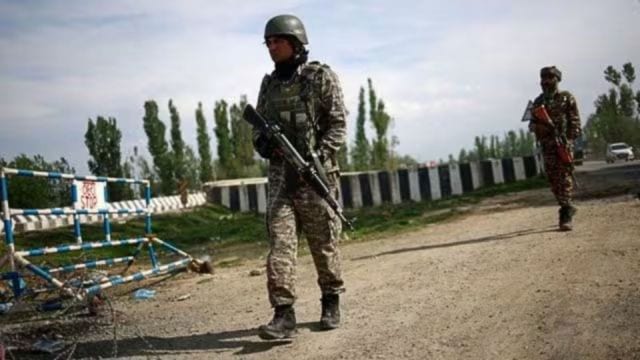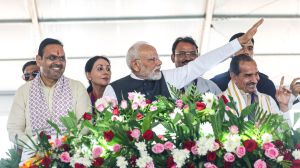An Indian delegation in New York discussed countering terrorist travel and financing with officials from United Nations anti-terror agencies amid New Delhi’s efforts to get The Resistance Front, suspected of carrying out the Pahalgam terror attack, designated as a UN-listed terror group.
A readout from UN Office of Counter-Terrorism (UNOCT) and Counter-Terrorism Committee Executive Directorate (CTED) said: “The discussions with the Indian delegation focused on ongoing collaboration with CTED and UNOCT within their respective mandates, particularly in support of implementing key Security Council counter-terrorism resolutions and the UN Global Counter-Terrorism Strategy.”

Under-Secretary-General Vladimir Voronkov of the UNOCT and Assistant Secretary-General Natalia Gherman of the CTED, who met with the Indian delegation, expressed condolences over the April 22 attack.
Story continues below this ad
It added that key areas of cooperation include UNOCT-led technical capacity-building initiatives supported by India—such as cybersecurity, countering terrorist travel, supporting victims of terrorism, and countering the financing of terrorism.
The participants also discussed efforts to counter the use of new and emerging technologies for terrorist purposes, in line with the 2022 Delhi Declaration adopted by the Counter-Terrorism Committee under the Chairmanship of India.
This includes the development of non-binding guiding principles — prepared with CTED’s support — on threats posed by unmanned aircraft systems and the use of emerging financial technologies for terrorist activities.
The delegation also met the Monitoring Team of the 1267 Sanctions Committee and other UN partner countries.
Story continues below this ad
Indian officials, including Foreign Secretary Vikram Misri, have said that it was the TRF which carried out the April 22 Pahalgam terror attack. They have called the group a “known front” for the UN-proscribed Pakistan-based terrorist organization, Lashkar-e-Taiba.
This is the first time since Operation Sindoor that New Delhi has raised TRF with the UN and its anti-terror bodies. This comes after Pakistan managed to get TRF’s name removed from the April 25 Security Council statement on the terror attack.
TRF claimed responsibility for the Pahalgam attack twice — within a few hours after the incident on April 22 and then again on the morning of April 23.
Misri had said that TRF later backed off from the claim, perhaps only after the outfit’s leaders and handlers across the border realised the gravity of the attack. “Obviously that retraction doesn’t convince anybody,” Misri had said after India conducted strikes at nine terror locations in Pakistan, including LeT’s headquarters in Muridke.
Story continues below this ad
India had given inputs about TRF in the half-yearly report to the Monitoring Team of the UN’s 1267 Sanctions Committee in May and November 2024, detailing its role as a cover for Pakistan-based terrorist groups. In December 2023, too, India had informed the monitoring team about the LeT and Jaish-e-Mohammad operating through small terror groups such as the TRF.
Pakistan’s pressure to remove references to TRF in the Security Council statement was perceived as a giveaway that the country’s establishment was behind the attack.
Indian officials have said that investigations into the Pahalgam terror attack have brought out the communication nodes of terrorists with Pakistan. They have also said that the claims made by TRF and their reposting by known social media handles of the LeT speak for themselves.
Indian officials have time and again referred to the Security Council’s April 25 statement that talks of “the need to hold perpetrators, organisers, financiers and sponsors” accountable, and said that India’s actions should be seen in this context.
(With PTI inputs from New York)









